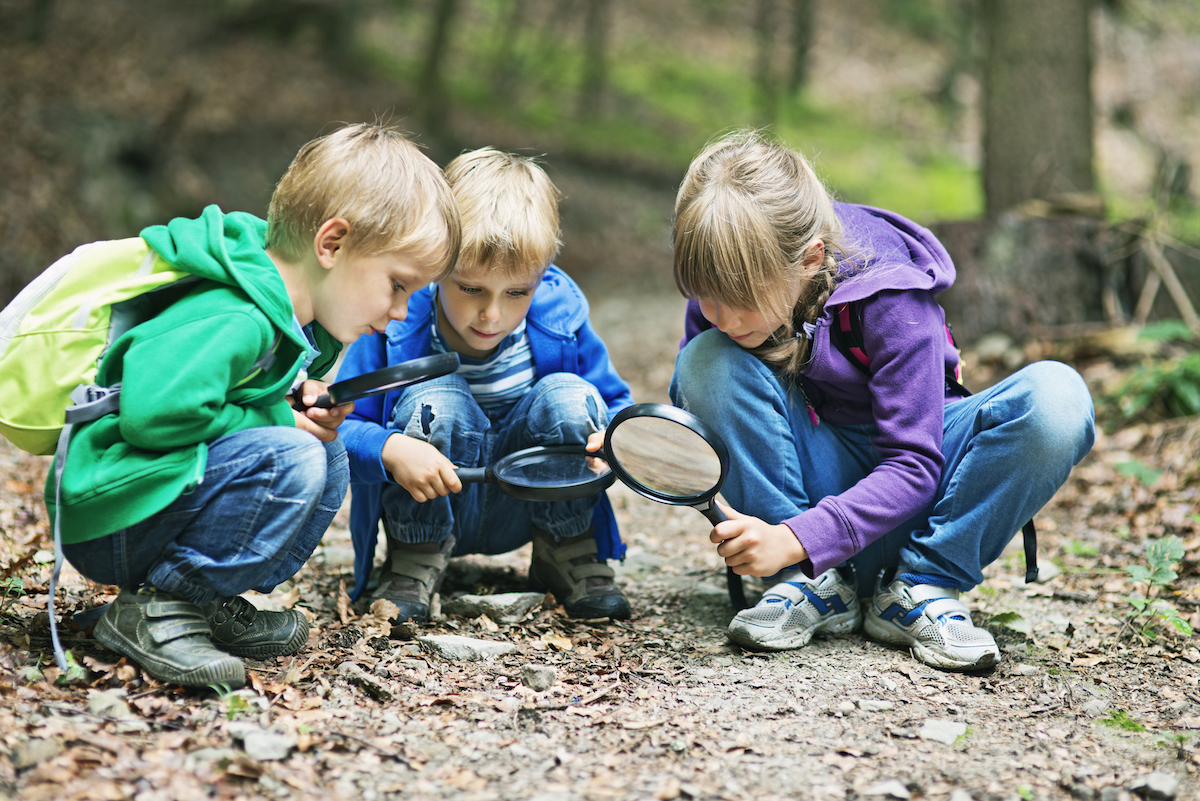Academic programming
We offer a full Montessori curriculum for 18 children 2.5 to 5.9, 16 spaces for full time children and two spaces for part time children who are transitioning into preschool for the first time. The second language we have introduced is Spanish into the curriculum on a daily basis. Extended Care is 7:30 am to 8:30 and 3:00 – 5:30.


Curriculum
Our program offers individualized activities in the following domains:
The Practical Life:
This area develops the child’s sense of order, concentration, coordination and independence. For young children, the mastery of every day tasks is an important step toward building self-confidence. Simple tasks are essential for young hands to accomplish, and these tasks teach children to concentrate and define their skills. Students grow to care for themselves, as well as others, by learning the importance of completing a task, cleaning up, and returning materials to the appropriate place, ready for the next person to use. The children are motivated to learn and to excel, and consequently are empowered by feelings of intrinsic satisfaction and self-confidence.
Lessons in Grace and Courtesy:
Learning how to play and work together with others in a peaceful and caring community is perhaps the most critical life skill that Montessori teaches. Everyday kindness and courtesy are vital practical life skills. Montessori children come to understand and accept that we all have responsibilities to other people. They learn how to handle new situations and challenges as they become increasingly independent. They develop a clear sense of values and social conscience, and they absorb everyday ethics and interpersonal skills from the earliest years.
Sensorial Exercises:
A child interacts with the physical world, thus exploring through his/her senses. Dr. Montessori credited the sensorial equipment for helping the child explore his/her environment and to help the child focus her attention more carefully on the physical world, exploring with each of her senses the subtle variations in the properties of objects. These materials are for developing the mathematics mind – providing the structures necessary for the order, sequencing and precision of mathematics. Materials are provided in our classroom to help children isolate the use of each sense, and in doing so, enhance its development. Children experience and learn to classify and grade these experiences.
Language:
The process of learning how to read should be as painless and simple as learning how to speak. The comprehensive Montessori language program, with its vast selection of Montessori materials, facilitates reading and writing at an early age. Classroom activities constantly stimulate the child’s vocabulary. Teachers encourage students to participate in discussions, tell stories, and give presentations, in which they practice organizing and communicating their thoughts and ideas.
Mathematics:
Montessori students use hands-on learning materials that make abstract concepts clear and concrete. A basic tenet of the Montessori program is that understanding is a matter of seeing and touching. This belief is most evident in the montessori mathematics curriculum, which moves from concrete, to increasingly abstract mathematical concepts. Specially-designed Montessori-materials enable children to gain a deeper understanding of mathematical principles.
Cultural Studies and Geography:
Our goal is to develop a global perspective, and study of history and world cultures forms the cornerstone of the Montessori curriculum. Cultural studies are explored through history and geography materials such as maps, and land and water forms, in addition to presentations, projects, and festivals.
Science:
The Montessori science curriculum revolves around hands-on exploration and investigation of scientific principles. Working with nature, both in and outside the classroom, helps children integrate conceptual science with practical life skills. Children experience the excitement of watching their seedlings develop into plants.
Art:
Art is not a separate area of the Montessori curriculum; it is an integral component. Throughout the day, children are free to spend quiet moments painting, drawing, or working on age-appropriate craft activities.
Music and Movement:
Music plays an important role in the school curriculum. Children learn songs, rhythm, chants and dances. While children engage in music and movement activities on a daily basis, a specialist music and gymnastics teacher also provides weekly classes.
Montessori Method
The Rainbow Montessori program is based on the work of Dr. Maria Montessori, the first Italian female physician and educator. Through her research and studies she helped to change the course of education in the early 1900s.
The fundamental tenet of Montessori is that a child learns best within a social environment that supports his/her unique development. The class operates on the principle of freedom within limits. Ground rules are established early on, and the program is always based on the core beliefs of independence and respect for each other as well as the environment. Children are free to work at their own pace, alone or with others, with materials they have chosen. The Teacher relies on his/her observations of the children to determine which new activities and materials are introduced to an individual child or to a small group. Creativity flourishes in this atmosphere of acceptance and trust. Research and experience have shown that Montessori children who transfer to traditional schools are exceptionally adaptable; they are able to work either independently or in groups. Since they have been encouraged to make decisions at an early age, their sense of autonomy and competence facilitates their adjustment to new environments.
